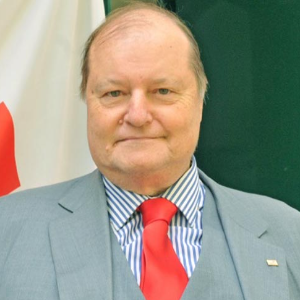Title : A health centred approach to drug disorders the humanitarian drug policy
Abstract:
The sense of the humanitarian policy framework to address drug problem worldwide comes from the need to give emphasis to a more humane attitude in support of people with drug disorders, to focus action and resources to alleviate suffering to those who are struggling with their sickness every day and avoiding any kind of punitive measures.
The primary objective of humanitarian aid and approach is to save lives, changing mind, and maintain human dignity. The main goal of the humanitarian approach is mostly focused on the urgency to decrease the harm, for people affected by addictions. A starting point is to reduce the side effects caused by social, legal and cultural criminalization and stigmatization of people that use drugs or are living with infectious diseases and above all is to facilitate their access to treatment.
Evidence says that a human and health-centred approach is exponentially more effective than punishment. The gap between recommendations and practice is significant. Indeed, 121 Red Cross and Red Crescent National Societies in 2005 felt the urgency to build up an international Consensus recognizing and reinforcing the Red Cross/Red Crescent’s unique auxiliary role in encouraging policy makers nationally and internationally to adopt an innovative and humanitarian approach to this key public health issue, by providing access to treatments instead of let them be arrested or wait them to die of overdose or of some infection diseases. This humanitarian initiative was further developed and enlarged to civil society organizations in 2020 under the name of the “Rome Consensus 2.0 towards a humanitarian drug policy”.
The main target of this international Campaign are the vulnerable with drug disorders who live a miserable life because they are discriminated, tortured, deprived of any health and social support, deprived of their rights and dignity because of their drug dependency.
Experience shows that repression can't prevent suffering people from using substances able to modify their relationship with the world.
It is in the interest of Government to be aware of all the drugs in each community. This is a realistic, feasible, sustainable goal in the long run. It is in everyone's interests to invest in therapy. This health approach allowed many European countries to play a key and positive role in the fight against drugs.
By therapy we mean any action that improves the condition of life for the addict. No therapy is decisive in itself, but the evidence tells us that the longer the person remains in therapy, the better the results are. Therapeutic institutions, instead of fighting with and criticizing each other to affirm their skills and various positions, should work to establish alliances aimed at proposing a person-centred intervention, in an effort to make available more care and treatment options for the client in every phase of his illness. A government that proposes a single type of intervention is bound to fail, since we assume that each subject is different from the others and different from himself in function of the moment in which he seeks help. The therapy that must be adapted to the subject and not vice versa. It is not enough to have therapeutic institutions waiting for drug users who are asking for help to arrive at their doors; a drug user able to request assistance is surely sick, but one who is not able to make the request is sicker still, and in need of lower threshold interventions. That is why it is necessary to adopt different strategies; instead of waiting, governments should assist people in the street, where they live their daily tragedy, and attempt to alleviate their suffering with harm reduction interventions.




